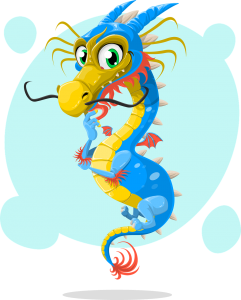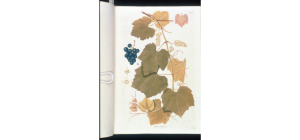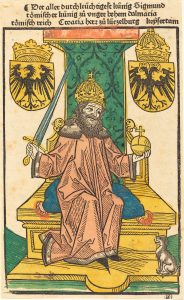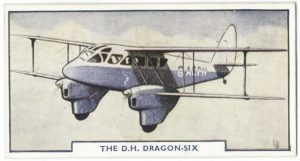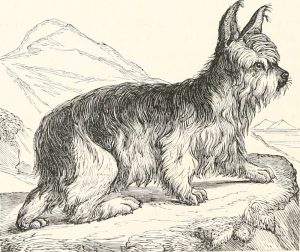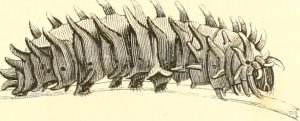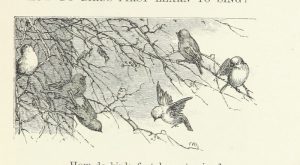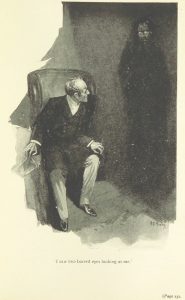Guild Update
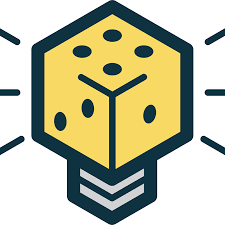
COVID and Guild Playtest Meetings
Currently we are allowing playtest facilitators for each location to determine if meetings will be held, as long as they fall within state guidelines. Updates on the status of these meetings will be announced via our BGDG of Utah’s Facebook Group.
Discord and the Guild
The BGDG of Utah’s Discord is a great way to get to know those in the guild and discuss all things game design! If you’ve not joined yet, we’d love to have you come and participate with us!
Comprehensive List of Games
Dustin Dowdle would like to create a comprehensive list of games by guild members, which would be available both on our guild’s website (bgdg.games as well as on Board Game Geek). Dustin will only plan on including games that the designer’s themselves submit, as he does not want to falsely attribute a game’s involvement in the guild if the designer doesn’t wish to be associated. With that being said, any published game (self published, crowdfunded or traditional publishing) that a guild member has worked on is welcome to be included in this list. Please contact Dustin at oddfoxgames@gmail.com or bgdgofutah@gmail.com to have your game added to the list.
Tabletop Simulator Event and January BGDG Business Meeting
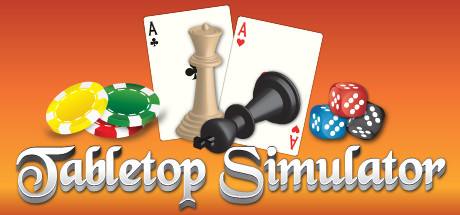
We are currently planning to hold a guild playtesting event in February on Tabletop Simulator and would love as many participants as possible! In order to help make this a successful event we are planning another event in January to help teach how to use Tabletop Simulator and answer questions. If you are interested in helping with either event then contact Please contact Dustin at oddfoxgames@gmail.com or bgdgofutah@gmail.com.
Currently the January event will be held after the BDGD Business Meeting on January 16th. The Business Meeting will start at 10 am and the teaching/learning of the online platforms will take place directly after. The specific date(s) for the actual playtesting event in February will be determined at the Business Meeting and will also be announced in the February newsletter.
Upcoming/Current Events
Recent Game News from the Guild
Mike Brown (“The True Mike Brown”) has a new game with Button Shy called The Second Most Perfect Moment which is a standalone (and combinable) expansion to The Perfect Moment. It’s only $12 on Button Shy’s Website.
:strip_icc()/pic5739747.jpg)
Ryan Laukat, and Red Raven Games, will be delivering Sleeping Gods to Kickstarter backers in mid-late January.
:strip_icc()/pic4547776.jpg)
Current Design Contests
Lots of contests running right now! This is usually the best time of year for contests. Take a look at the one’s that suit your fancy and either start working on a new game or adjust a current design to fit the constraints of one of these contests!
Zenobia Award Contest (01/15/21)
Roll and Write Game Design Contest (01/15/21 BGG)
Iron Designer Contest (01/22/21 Talon Strikes Studio & Nonepub)
Boulogne-Billancourt Board Game Designer’s International Contest (01/29/21 Boulogne-Billancourt)
Cardboard Edison Award (01/31/21 Cardboard Edison)
Two Player Print and Play Game Design Contest (02/14/21 BGG)
54 Card Contest (04/30/21 BGG)
Solo Duo Challenge (05/14/21 The Game Crafter & BGDL)
Guild Related Videos and Reviews
Brandt Brinkerhoff recently posted his Oros Automa Rules video.
Nerding Out Podcast
Nerd Out with Riley Stock (game designer and guild member) and Danny Dowdle (amazing painter of miniatures). They talk board games, board game design, comicbooks, movies, TV, video games, and really anything that we can nerd out about.
Board Game Workshop Podcast
Chris Anderson and Dustin Dowdle (guild member) discuss all things game design:
Game Design Highlights by Dustin Dowdle
This month Skye is taking a break from the Game Design Highlights and I’m stepping in to share some ideas for art assets that can be used for board game prototypes. Much of what I’m sharing comes from The Board Game Business Podcast (episode 89). I’ll format this with honorable mentions and count down from 5-1.
Honorable Mentions
Humble Bundle is a great option when the time is right. Occasionally there are art assets that are most likely for video games but are easily used for board games as well. When this happens you can get a boat load of great assets for dirt cheap! Below is a sample of just a few of the assets that came from one of the bundles I picked up.
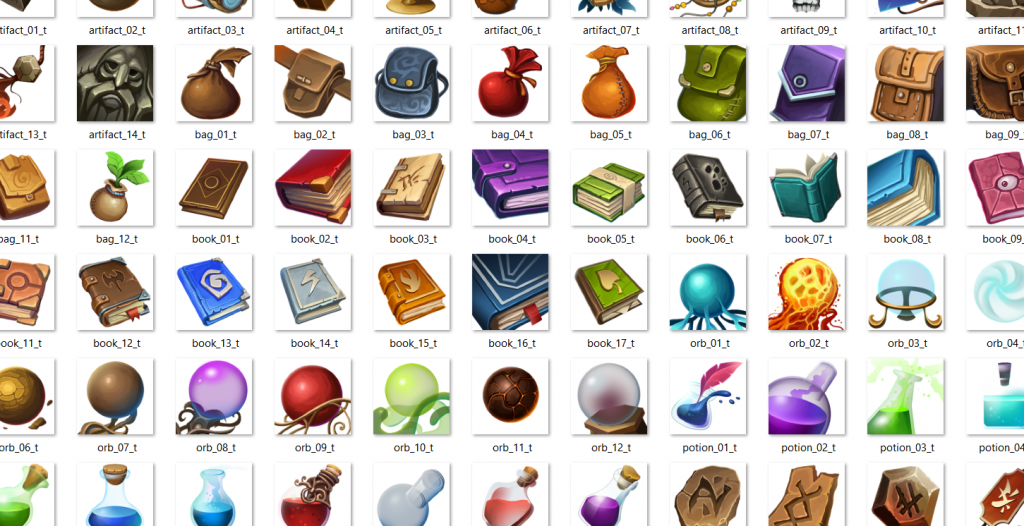
I also used the Humble Bundle assets for my game Septet, as seen below:
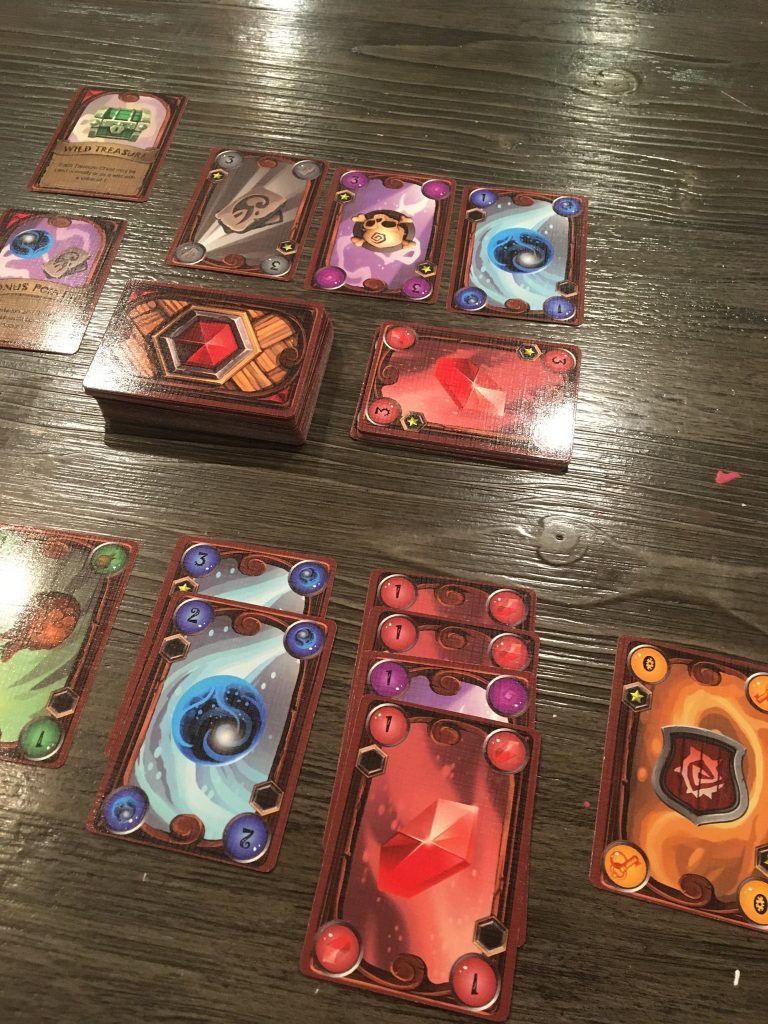
Deviant Art has some of the best art around and you are able to get in contact with the artist themself. Using their art will cost you and you’ll have to work out a contract on your own.

#5 Public Domain Stock Photos
A Google search can help you find a lot of things but we are going to shout out Pixabay as a way to refine your search a bit more. Pixabay is full of public domain art of stock photos (be a bit careful though as licensed photos/art can accidentally get uploaded to the site). Otherwise no attribution is needed.
#4 Government Websites
Government websites and government funded websites all have art/pictures that are free for the public to use and don’t require any attribution. Below are a few great ones to start with.
NASA.gov is a great place to find space themed pictures. There are some very stunning pictures as well as the older one’s we’re all used to seeing.
National Gallery of Art the name says it all. Anything you’d expect to see at the National Gallery of Art is available to be used, without the need to purchase anything or attribute anything the same goes for the Smithsonian collection and the New York Public Library Digital Collections.
#3 Flickr
If used generally then you need to be very careful about licensing with the literal billions of photos on Flickr, however, there are certain libraries that upload license free images where you can gather a lot of great stuff! The British Library on Flickr is one of these where you can go to or there’s a conglomerate of smaller libraries who all contribute to this more general Internet Archive of Book Images on Flickr (by the way, there are more pictures of beetles here than you ever thought possible!)
#2 Patreon
This is a great place to interact with the designers themselves and support the work they are doing while also gaining access to various art assets. Though there are far more than what I’ll show here, I’ll shout out a few that were mentioned on the podcast and also highlight our own Mike Brown’s Patreon though I’ll mention more on his icon art below in #1:
Arcknight
Alisha Volkman
Satoshi Matuura
#1 Icon Sites
Of course there are the common icon sites everyone uses, game-icons.net and The Noun Project. In addition to these we have our own Mike Brown (The True Mike Brown as he refers to himself) who also does icon work as displayed below. Feel free to contribute to his Patreon at the link above or contact him directly for any iconography you might need.
Interview with Jon Walton
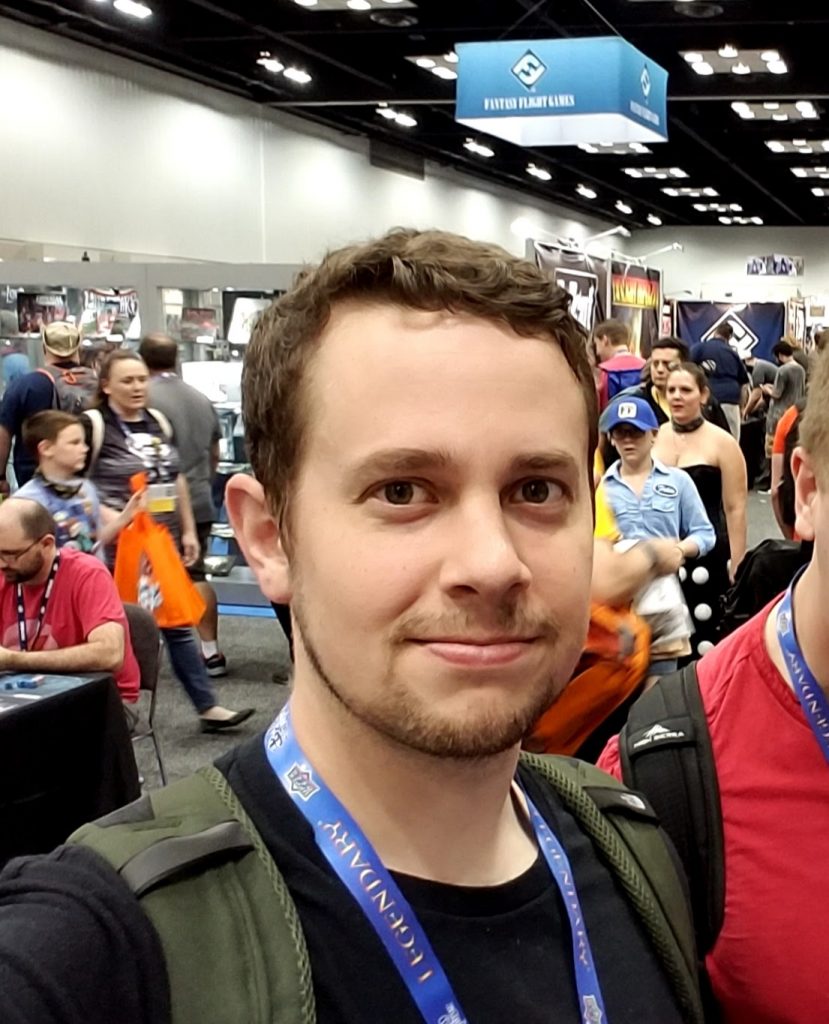
Personal Questions
What’s your backstory? Tell us about the two of you and how you got into game design.
As long as I’ve been playing board games, game design has been a natural creative response to games that I was playing. We played the typical childhood games growing up, but we always riffed on the rules or created special powers for characters. In college, I got introduced to more modern board games and that trend continued. My earliest serious design efforts were custom character sets and rules variants for Bang! alongside some rules variants and special powers for Risk and Axis and Allies. It wasn’t until after college that I realized that there was a bigger world of design and designers who worked on whatever they wanted.
I’ve been designing my own board games for about 6 years, most of which have been spent burning through prototype after prototype and learning good design practices through trial and error. Over the last few years, I’ve been pulled more and more towards historical games that take clear positions on important issues. My design work has reflected that and I’m currently working on a series of games set in the U.S. civil rights era. If you want to talk about games that tackle difficult subjects or the accessibility of such games I will always be your willing conversation partner!
Can you walk us through your design process? Do you start with specific themes in mind or want to utilize certain mechanisms?
I always have mechanical “what if’s” in mind, but my games are largely driven by themes and historical lines of inquiry that seem underrepresented in the board game industry. Why aren’t there games on this topic? Why do board games avoid this theme? These aren’t strictly historical, but most of my design work is focused on questioning norms and seeing what we could do differently. For instance, I love Twilight Imperium and Eclipse, but I’d love to see a science fiction game in an interstellar setting where players are trying to avoid conflict at all costs and war or casualties are viewed as terrible instead of normal means to an end. Once I settle on ideas that I like, I find that mechanisms (either new or old) lend themselves to the ideas naturally and a game takes shape. After that it’s ugly prototype after ugly prototype until something playable emerges!
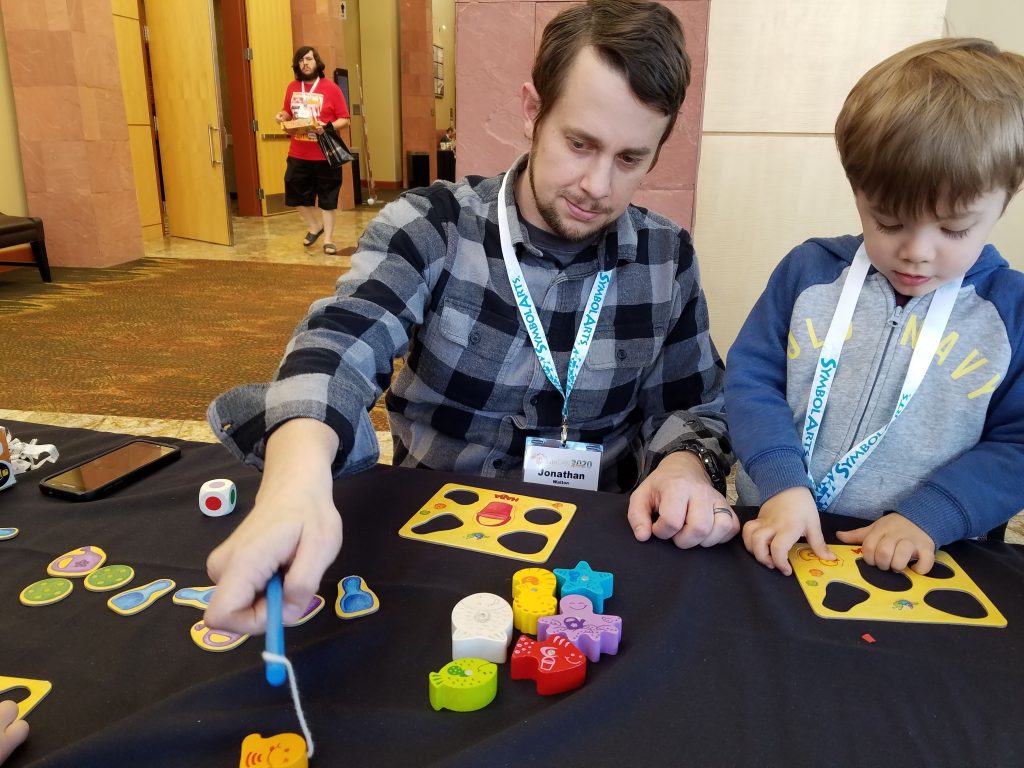
How did you come to be involved with the guild?
I moved to Utah a few years ago from Maryland and wanted to find local game designers that I could work with. The guild was easy to find online, but the pandemic started right after I found the guild, limiting my interaction with folks to the Discord server so far.
If you could pick 3 games that every designer should have to play, as a sort of game design curriculum, what would you choose?
Knee-jerk, not thought-out response: Dominion+all expansions, Agricola, and Terra Mystica.
More thought-out but wiggly answer: One of the problems I’ve seen myself and other designers come up against is that we often play and design games in a specific category and get trapped in certain ways of thinking. I struggle with this a lot. So, instead of specific games, I think it’s important that designers actively explore different genres or types of games. There’s obvious categories like deck builders, roll-and-writes, worker placement, auctions, action programming, and engine builders, etc. but there’s other, more specific genres like the COIN series, PAX games, 18XX, hex and counter wargames, cube rail games, tabletop RPGs, and so many others that are worth exploring. You don’t have to buy games in all these categories, but read their rulebooks and watch playthroughs to get an idea of what they offer. I’d encourage designers to expand their horizons and look at as many types of games and publishers as they can. You don’t have to like everything, but there’s a lot to learn from what’s out there.
Game Related Questions
You have said that you’ve gone through lots of varied prototypes over the years, but the main game you’ve been working on is called The Chicago Freedom Movement. Could you tell us more about that?
The Chicago Freedom Movement is a semi-cooperative game in which players work with Martin Luther King Jr to fight for racial equality in 1966 Chicago. While we tend to look back at the civil rights movement as a monolithic entity, this game highlights how the movement was actually a large tent that housed multiple ideological factions that wanted to affect change at different levels. Mechanically, the game is a communal tableau builder and communal worker placement game with a rolling market that introduces new cards. Importantly, the game forces players to work together as accomplishing anything on your own is almost impossible. It’s currently in the “ugly prototype” phase but playtesting has been going great and I’m starting to invest more time into making it pretty.
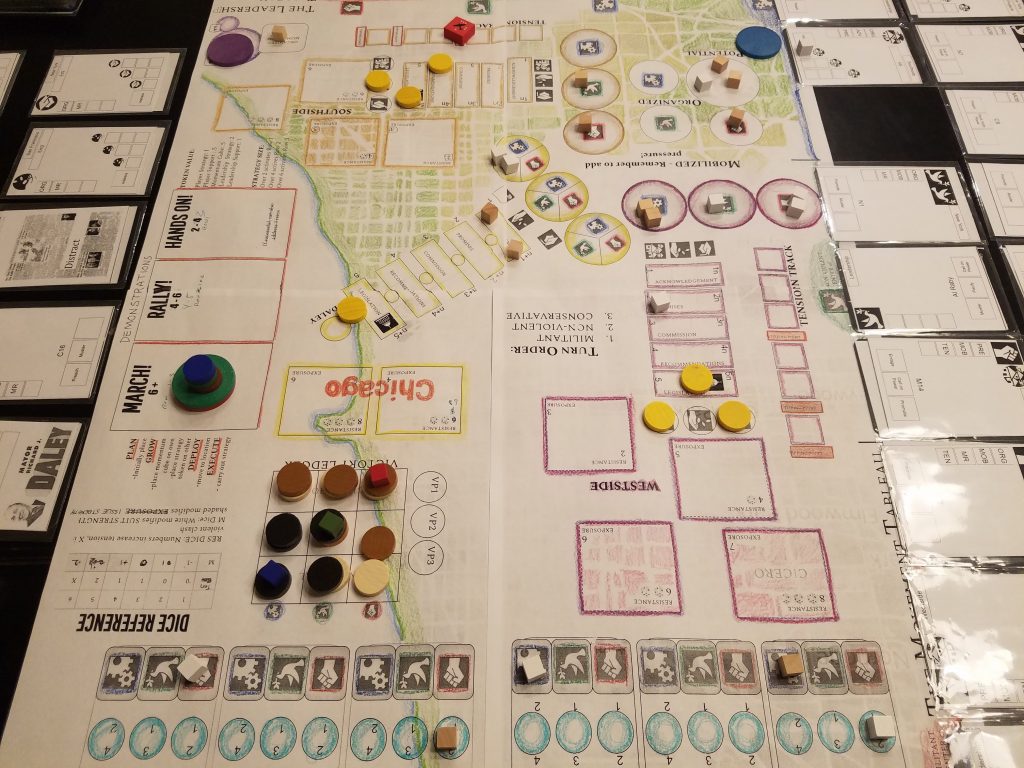
What design challenges have you faced with such a design?
Board games that have broached issues like race or slavery are often viewed as “educational experiences that are worth playing once” but not ones that attract regular play by a large portion of the gaming population. In short, they are too heavy or too serious. The finest line I’ve had to walk with this design is making a game that is accessible and “fun” without making light of the issues at hand or paving over the ugly truths that civil rights actors had to confront and fight to overcome. There’s been lots of interesting mechanical challenges, of course, but those have been relatively easy to overcome with time and playtesting.
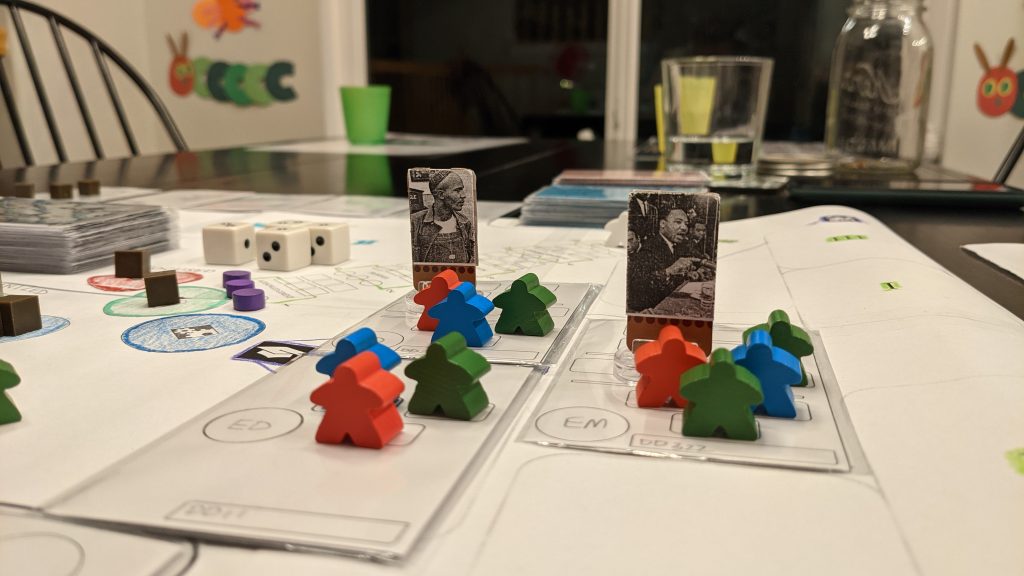
Tell us about some of the other designs you’ve been working on.
In addition to The Chicago Freedom Movement, I am designing a few other “accessible” civil rights games including one called With All Deliberate Speed that focuses on the implementation of the Brown vs. Board of Education decision as well as another one that details the Montgomery Bus Boycott. I also want to make a design that has players act as journalists trying to expose COINTELPRO, but that is very much in the ideas phase.
Outside of historical games, I’m working on several other designs including a semi-cooperative game in which players act as contractors designing weapons and ships that help fuel some interstellar conflict; a couple social deduction games; and a game about cheese production, because cheese is amazing.
Are you hoping to self publish or pitch your designs to a publisher? What are your thoughts behind that?
I have a stable job that I love so I only intend to pitch to publishers and let them take care of the hard work. I know that it comes with risks, but given the esoteric nature of a lot of my games and the publishers that would even look at games like that, I’m not too worried about them running with them in directions that I don’t like.
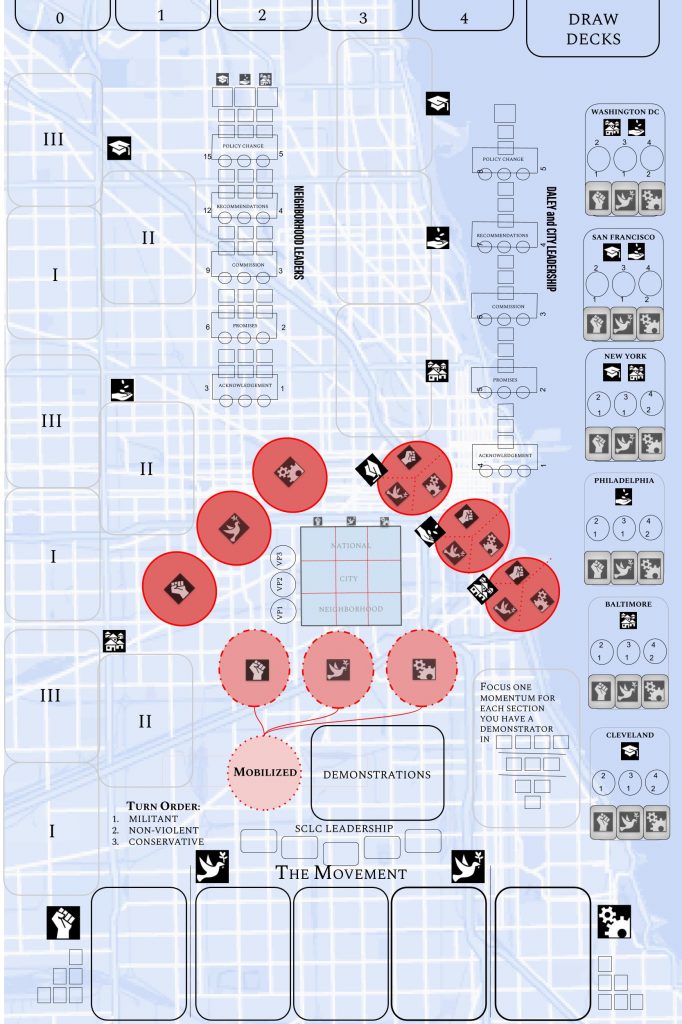
Final Wrap up Questions
How would you suppose the guild could improve to better assist in the game development process?
I’d like to see the guild continue to do more about offering teaching sessions online for different topics. The recent sessions on digital implementations have seemed great, but I’d argue that there could be more sessions like that on all sorts of topics.
If people wanted to contact you or follow your game designs how should they go about that?
I’m pretty active on twitter and post stuff about my current designs and board game design there the most. My handle is @jonwesleywalton.


